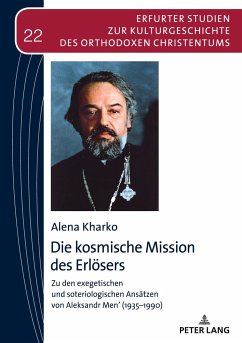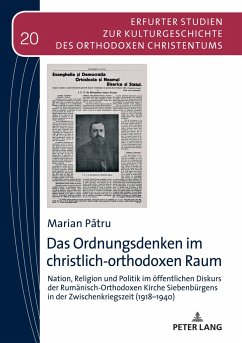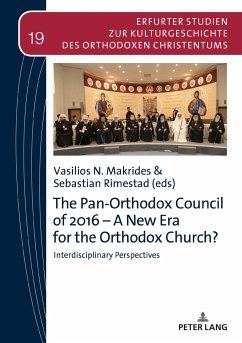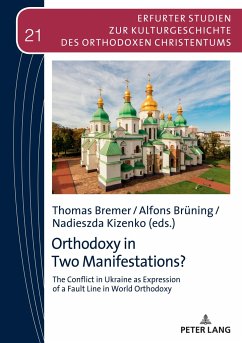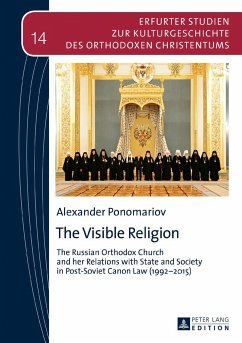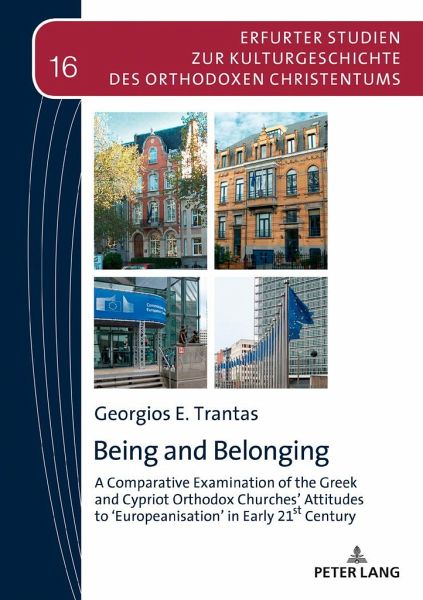
Being and Belonging
A Comparative Examination of the Greek and Cypriot Orthodox Churches' Attitudes to ¿Europeanisation¿ in Early 21st Century
Herausgegeben: Makrides, Vasilios N.
Versandkostenfrei!
Versandfertig in 6-10 Tagen
92,65 €
inkl. MwSt.

PAYBACK Punkte
0 °P sammeln!
This book examines and compares, from an interdisciplinary perspective of Religious Studies and International Relations, the conduct and rhetoric of the Orthodox Churches of Greece and Cyprus vis-à-vis the 'Europeanisation' process. This study focuses on the conditionality of their «sense of belonging» in the European Union (EU) as their predisposition is dependent, in part, on their sense of «being», as well as on their perception of an ideal type of Europeanness. In this context, this book offers insights on how the Greek and Cypriot Churches, as soft power actors of domestic and Europe...
This book examines and compares, from an interdisciplinary perspective of Religious Studies and International Relations, the conduct and rhetoric of the Orthodox Churches of Greece and Cyprus vis-à-vis the 'Europeanisation' process. This study focuses on the conditionality of their «sense of belonging» in the European Union (EU) as their predisposition is dependent, in part, on their sense of «being», as well as on their perception of an ideal type of Europeanness. In this context, this book offers insights on how the Greek and Cypriot Churches, as soft power actors of domestic and European capacity, perceive Europeanness and Otherness; thereby, the compatibility of the personified Greek and Cypriot states with the EU as a post-Westphalian political-cultural entity comes into view.






